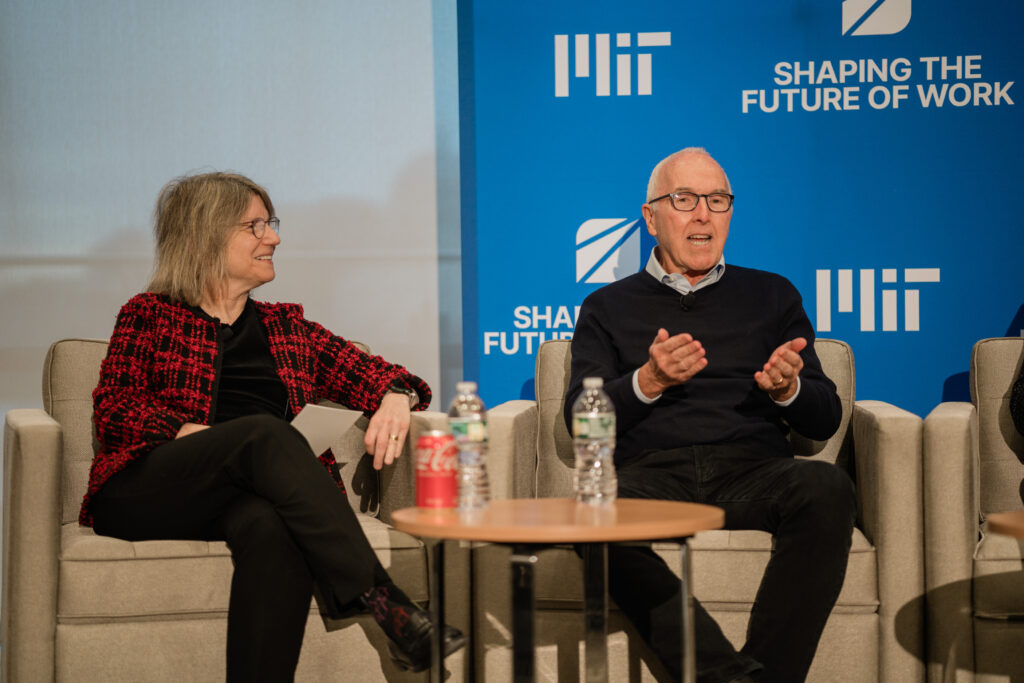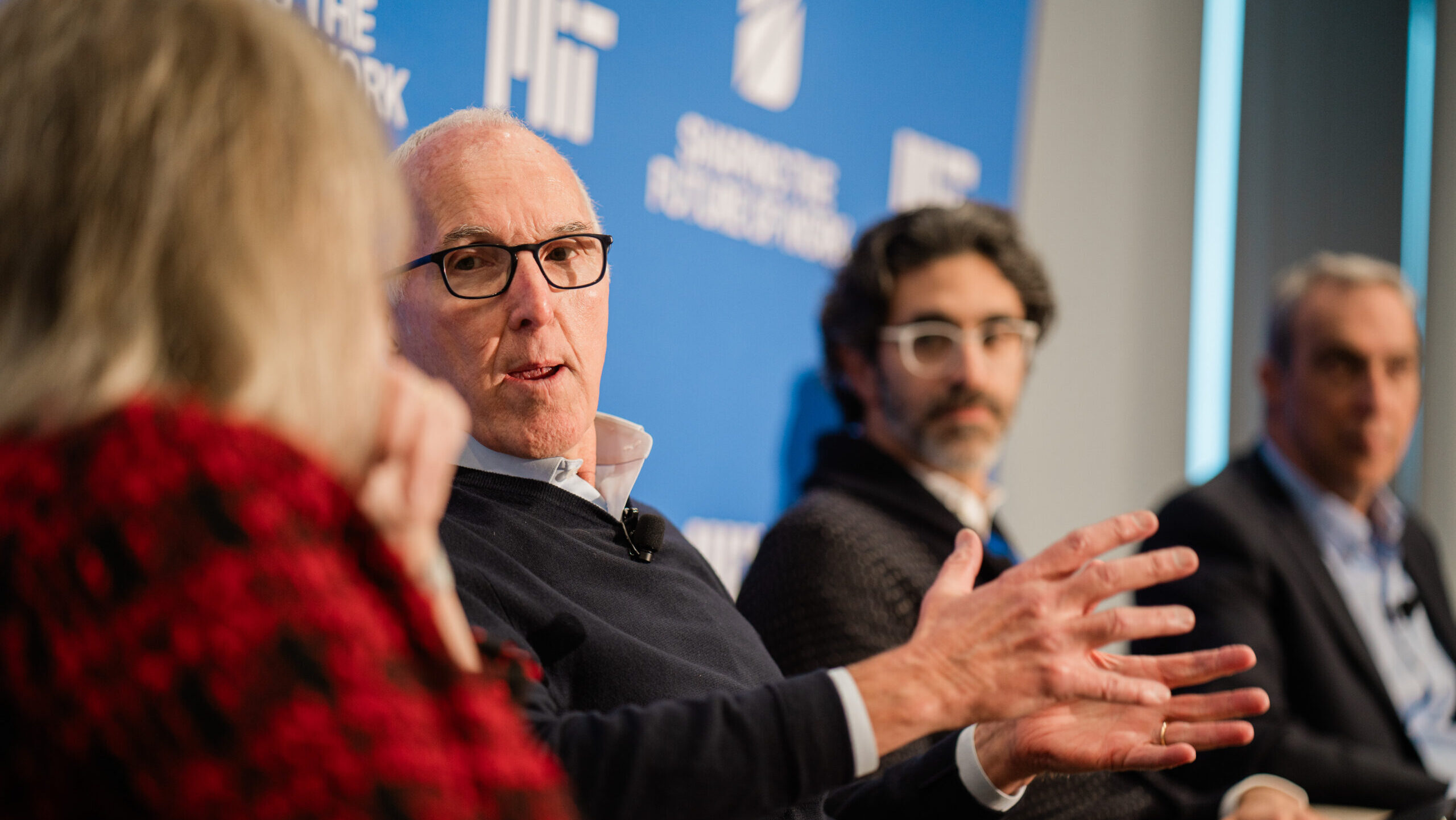Project Liberty Founder and Executive Chairman, Frank McCourt, was a featured panelist at MIT’s January 22nd “Shaping the Future of Work” initiative launch event, which explored how current and emerging technologies, including AI, may impact the future of work. In a session entitled “Shaping Technology for Social Good,” Frank’s fellow panelists included Brian Deese, a former advisor to President Biden and current MIT Institute Innovation Fellow; Daniel Huttenlocher, Dean, Schwarzman College of Computing at MIT; and Zaid Obermeyer, Associate Professor, Blue Cross of California and Distinguished Professor, UC Berkeley. Their discussion was moderated by MIT’s President, Sally Kornbluth.

The panelists offered a diverse set of perspectives on the potential rewards and risks of an AI-powered future, including whether and how AI might be used to replace certain professionals across different industries, the limitations of AI, solutions designed to tackle built-in biases, and the implications of AI on society and democracy.
Frank spoke about the damage inflicted on children, families, and society by today’s technology and offered an optimistic perspective for ways to drive change, including the promise of decentralized technologies like the Decentralized Social Networking Protocol (DSNP), an open internet protocol stewarded by the Project Liberty Foundation that enables users to own and control their personal data. He also discussed Project Liberty Foundation’s collaborations at MIT and Harvard to develop new technologies on DSNP, such as the work being done with the MIT Center for Constructive Communication and Cortico to support the creation of healthier social networks. He speaks about the need and potential of this work in more detail in his forthcoming book, Our Biggest Fight: Reclaiming Liberty, Humanity And Dignity in the Digital Age, which will be published by Crown on March 12th.
The audience included more than 100 students, tech industry employees, and labor leaders, among others. Questions largely focused on issues related to the evolution of big data models and their algorithms, as well as AI governance.
Watch the panel below.
